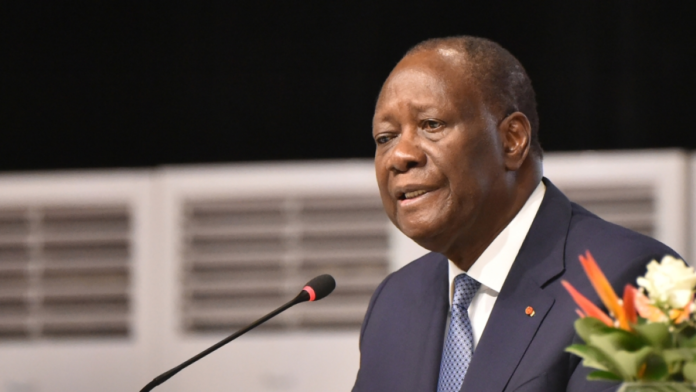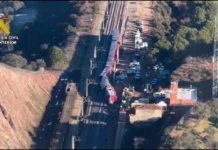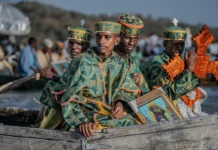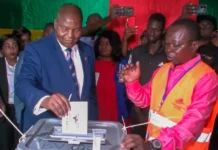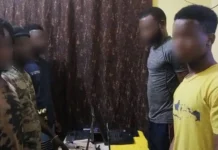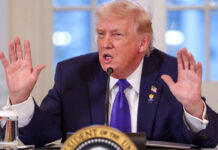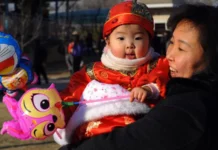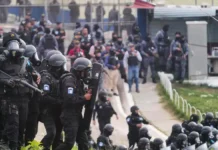Ivory Coast President Alassane Ouattara has formally declared his candidacy for a fourth term in office ahead of the October 2025 presidential election, setting the stage for a largely uncontested race in a country still healing from past political turmoil. The 83-year-old leader, who first came to power in 2011 following a bloody civil conflict, is once again in pole position as key opposition figures have been disqualified from running.
Ouattara, a former international banker and economist, made the announcement on Tuesday, assuring citizens that his health is not a concern and expressing confidence that continued economic progress and relative political stability will win voter support.
Born on January 1, 1942, in Dimbokro, central Ivory Coast, Ouattara boasts an impressive résumé, including positions as governor of the West African Central Bank (BCEAO) and deputy managing director of the International Monetary Fund (IMF). He also holds a Ph.D. in economics from the University of Pennsylvania.
Often presenting himself as a technocrat rather than a traditional politician, Ouattara has overseen a decade of robust economic performance, with GDP growth averaging around 6% annually. The IMF projects 6.3% growth in 2025, driven largely by the country’s role as the world’s top cocoa producer and a key player in the regional economy.
“Ouattara’s primary success has been on the macroeconomic side and in restoring Ivory Coast’s international influence,” said political analyst Arthur Banga. “However, there are still democratic challenges to overcome.”
Ouattara’s rise to power has been marked by turbulence. His 2010 electoral victory over then-incumbent Laurent Gbagbo was marred by post-election violence that claimed over 3,000 lives and only ended when Gbagbo was arrested in his bunker in Abidjan. The scars of that conflict still linger.
Ouattara previously pledged to step aside and support a younger generation of leadership. However, he reversed course in 2020 after his designated successor, Prime Minister Amadou Gon Coulibaly, died suddenly. He argued that a new constitution passed in 2016 reset term limits, a legal interpretation disputed by the opposition.
The 2020 election was boycotted by major opposition parties and was followed by violent clashes that left at least 85 people dead, further deepening concerns over democratic governance and inclusivity.
With the 2025 race approaching, Ouattara appears to be running with minimal competition. Laurent Gbagbo, who returned from exile in 2021, and Tidjane Thiam, the former CEO of Credit Suisse and a high-profile international figure, have both been ruled ineligible to run. The exclusion of prominent opposition candidates has sparked criticism from civil society and raised fresh concerns about electoral fairness.
“This means there is work to be done to achieve normalcy,” said analyst Banga, warning of the potential for renewed election-related unrest.
Yet, with no strong contenders in the race, Ouattara is widely expected to sail to re-election, as he did in 2015 and 2020, when he secured 83% and 94% of the vote, respectively.
Despite criticism, many Ivorians credit Ouattara with restoring peace and economic stability after a decade of civil conflict. His alliance with Henri Konan Bédié, a key political figure and former president—helped solidify his power base in previous elections.
Political scientist Geoffroy Julien Kouao notes that while Ouattara has ensured relative peace, social inequality remains a challenge. “He has succeeded in establishing peace after a decade of crisis,” Kouao said. “However, much remains to be done in terms of wealth distribution to reduce social inequalities.”
With another term likely, observers believe Ouattara now faces the crucial task of ensuring equitable development, especially in underserved rural and northern regions. He also must work to foster a more inclusive political environment if Ivory Coast is to achieve long-term democratic consolidation.
As the October election approaches, the West African nation once again finds itself at a crossroads, torn between the promise of economic progress and the imperative of political reform. Whether Ouattara’s final chapter in office will deliver both remains to be seen.
Written By Rodney Mbua









